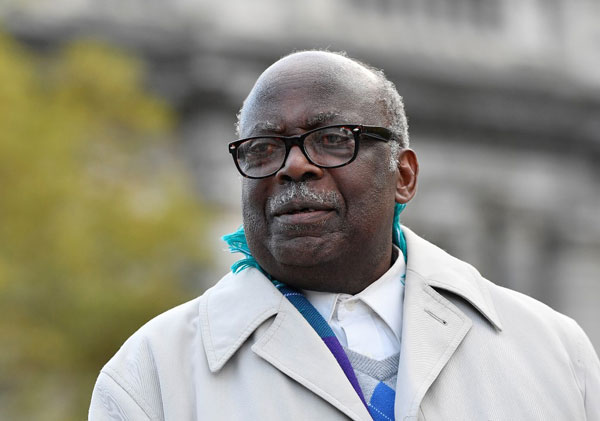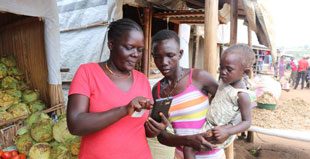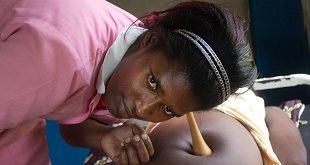
Brussels, Belgium | AFP | A Belgian court on Friday sentenced a former Rwandan official convicted of genocide for his part in his country’s 1994 massacres to 25 years in prison.
Fabien Neretse, an agricultural engineer, was arrested in France in 2011 and was found guilty of genocide and war crimes on Thursday after a trial in the Brussels high court.
Presiding judge Sophie Leclercq said the 71-year-old had committed “an irreparable attack against the whole of humanity” and shown himself at the trial to be without pity or remorse for his crimes.
Some 25 years after the horror in Rwanda that left 800,000 people dead, Neretse became the first person to be convicted in former colonial power Belgium on a genocide charge.
Leclercq said his crimes constituted “atrocities that defy the imagination” which threatened “the peace and well-being of the world”.
“He has shown himself to be without pity, and extremely organised to the extent of setting up a militia,” the judge said.
“Convinced of his impunity and the rightness of his actions, he did not hesitate to brag about what he did and even to present one of his victims as a trophy.”
Neretse protested his innocence throughout the trial and was given five years less than the 30 demanded by prosecutors on account of his age.
He was also convicted of war crimes for 11 killings in Rwanda, under Belgium’s code of universal jurisdiction for the most serious offences.
Earlier, prosecutor Arnaud D’Oultremont told the jury members who decided the sentence that they were “sending a signal not only to Mr Neretse, but also the rest of the world” that “Belgium will never be a land of impunity for genocidaires and war criminals”, stressing that Neretse had never admitted his crimes nor expressed regret.
Neretse’s lawyer Jean Flamme said he was “appalled” by the sentence, calling it a “scandal for Belgian justice” and announcing he would file an appeal.
The defence hung on questioning the credibility of the multiple witnesses called against him — but prosecutors managed to prove that the exile has been living a lie for a quarter of a century.
Belgium has already held four trials and condemned eight perpetrators of killings in its former colony, but Neretse is the first defendant to be convicted of the gravest charge — genocide.
– Urged slaughter –
During the trial, Neretse was accused of having ordered the murder of 11 identified civilians in Kigali and two in a rural area north of the capital in April and July 1994.
The jury cleared him of two of the Kigali killings, but found him guilty of 11 war crimes.
To demonstrate the more serious charge of genocide, the prosecutor cited Neretse’s appearance at public rallies urging fellow members of the Hutu ethnic group to slaughter the minority Tutsi community.
Neretse was a farming expert who founded a college in his home district Mataba, in the north of Rwanda.
Between 1989 and 1992 he was director of the national coffee promoter, OCIR-Cafe, a key post in one of Rwanda’s main export sectors.
He was seen as a local kingpin in Mataba, and a cadre in the former MRND ruling party of late president Juvenal Habyarimana.
But at trial he insisted he was an inactive party member and a friend to Tutsis.
“I will never stop insisting that I neither planned nor took part in the genocide,” he said on Tuesday, before the jury retired to consider its verdict.
However, the court found there were many “improbabilities” in his statements, according to the judgment.
Neretse was arrested in France, where he had refugee status and had restarted his career. He had spent only a few months in protective pre-trial custody.
– ‘Truly historic’ verdict –
Under a 1993 law, Belgian courts enjoy universal jurisdiction to prosecute genocide, war crimes and crimes against humanity wherever they took place.
The case brought against Neretse was in large measure thanks to the determination of 70-year-old Belgian former EU civil servant Martine Beckers.
Beckers, whose sister, brother-in-law and 20-year-old niece were shot dead by a gang linked to Neretse, said she was “happy” with the sentence.
Their killings took place three days after the assassination of Hutu president Habyarimana, the start of a genocidal campaign that would leave 800,000 Tutsis and moderate Hutus dead.
Beckers made a formal complaint to the Belgian federal police in 1994, and in the years since — working with Rwandan witnesses and human rights groups — she believes she has traced the instigators.
Magistrates have been compiling evidence in the case for 15 years.
 The Independent Uganda: You get the Truth we Pay the Price
The Independent Uganda: You get the Truth we Pay the Price



